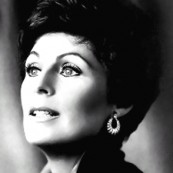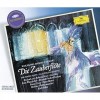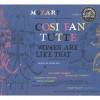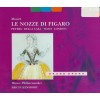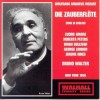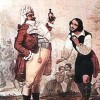| Voice/Instrument: |
Biography
Roberta Peters (May 4, 1930) is an American coloratura soprano who enjoyed a long and distinguished career at the Metropolitan Opera, one of the most durable opera stars of America.
Born Roberta Peterman in The Bronx, a borough of New York City, the only child of a shoe salesman and a hat maker. She started her music studies at age 13, encouraged by tenor Jan Peerce, with William Herman, a strict teacher renowned for giving his students a thorough training. Herman made sure Peters had French, German and Italian lessons and made her sing scales from a clarinet method. After six years of training, Herman introduced her to impresario Sol Hurok, who arranged for an audition with Rudolf Bing, general manager of the Metropolitan Opera. Bing had her sing the Queen of the Night's second aria from The Magic Flute (with its four Fs above high C), seven times, listening from all parts of the hall to make sure she could fill the hall with sound. He scheduled her to sing the role in February 1951.
Fate had it otherwise. On November 17, 1950, Bing phoned her asking if she could sing that night. Nadine Conner, cast as Zerlina in Don Giovanni, was indisposed and could not perform. Peters who knew the role, but who had never sung with a full orchestra, never performed in a full opera production, never even performed on stage, professionally or otherwise, except for her audition, accepted. Fritz Reiner, the conductor that night, was known for being hard to follow, but he made a point of coming to Peters's dressing room to encourage her. Her performance was received with great enthusiasm, and her career took off.
Combining an attractive voice with sparkling coloratura and good looks, Peters became the darling of America and a great proponent of opera for the masses. She quickly established herself in the standard soubrette and coloratura repertoire, her roles included Susanna in Nozze di Figaro, Despina in Cosi fan tutte, The Queen of the Night in The Magic Flute, Amore in Gluck's Orfeo ed Euridice, Marzeline in Beethoven's Fidelio, Rosina in Il barbiere di Siviglia, Adina in Elisir d'amore, Norina in Don Pasquale, Oscar in Ballo in maschera, Nanetta in Falstaff, Olympia in Les contes d'Hoffmann, Sophie in Der Rosenkavalier, Zerbinetta in Ariadne auf Naxos, Adele in Die Fledermaus. She later added lyric-coloratura roles such as Amina in La Sonnambula, Lucia in Lucia di Lammermoor and Gilda in Rigoletto, the last being her farewell role at the Met in 1985.
Peters also appeared at the Lyric Opera of Chicago and the San Francisco Opera, as well as numerous cities around the United States, while on tour with the Met. Over the years, she expanded her repertoire to include roles such as Lakmé, Juliette in Roméo et Juliette, Massenet's Manon, even attempting occasionally Violetta in La Traviata, and Mimi in La Bohème.
Peters also appeared abroad as early as 1951, when she sang at the Royal Opera House in London, in Balfe's The Bohemian Girl, conducted by Sir Thomas Beecham. From the mid 1950s onwards, she appeared in several opera houses in Italy, the Vienna State Opera, the Salzburg Festival, and the Bolshoi in Moscow, in 1972.
Peters also appeared in recitals at all the great concert halls throughout the USA, and appeared numerous times on American television, in such program as The Voice of Firestone, and the Ed Sullivan Show on which she appeared a record 65 times! Early in her career in 1962, she dazzled an audience of over 13,000 guests while performing under the musical direction of Alfredo Antonini during the popular Italian Night concert series at Lewisohn Stadium.
Later in her career she added operetta to her repertoire, such as The Merry Widow, and musical comedy such as The King and I. Peters never officially retired and still gives occasional recitals.
Roberta Peters was briefly married to baritone Robert Merrill in 1952. The two separated amicably, remained friends and went on performing together many times thereafter. She remarried in 1955, to Bertram Fields, with whom she had two sons.

